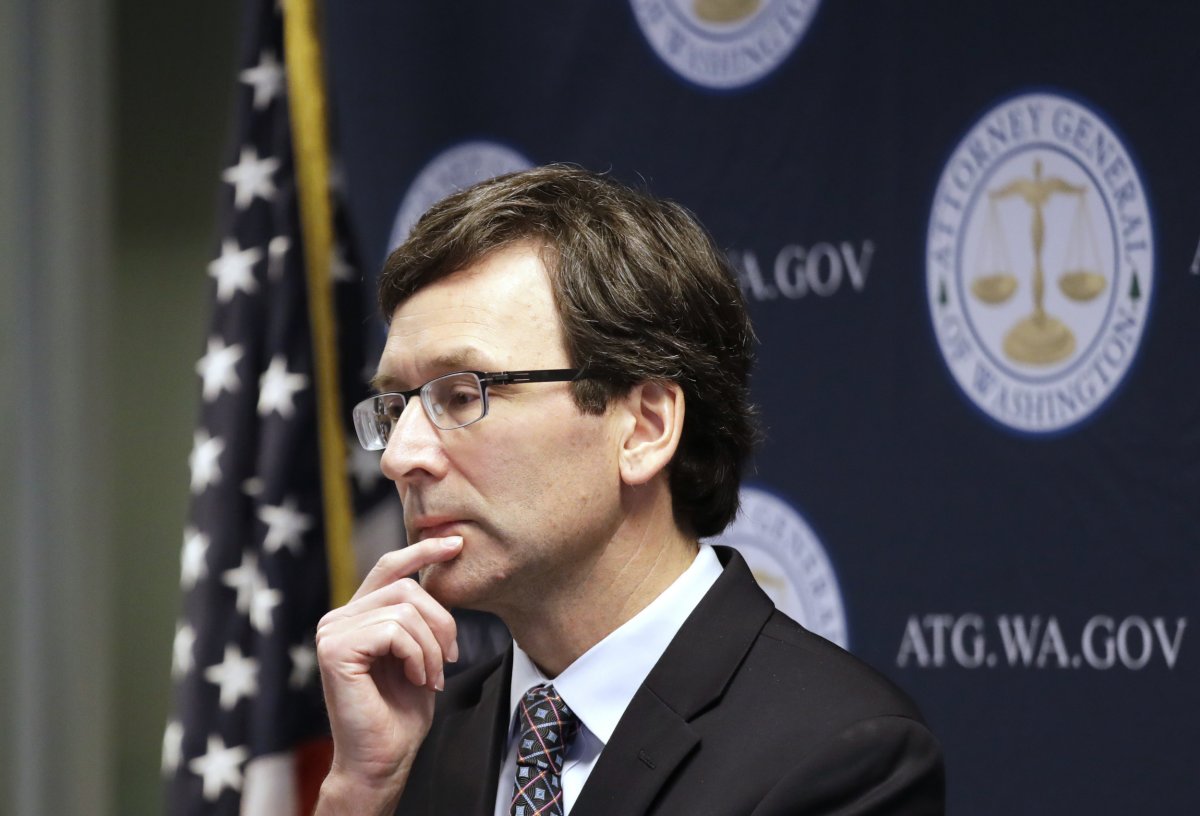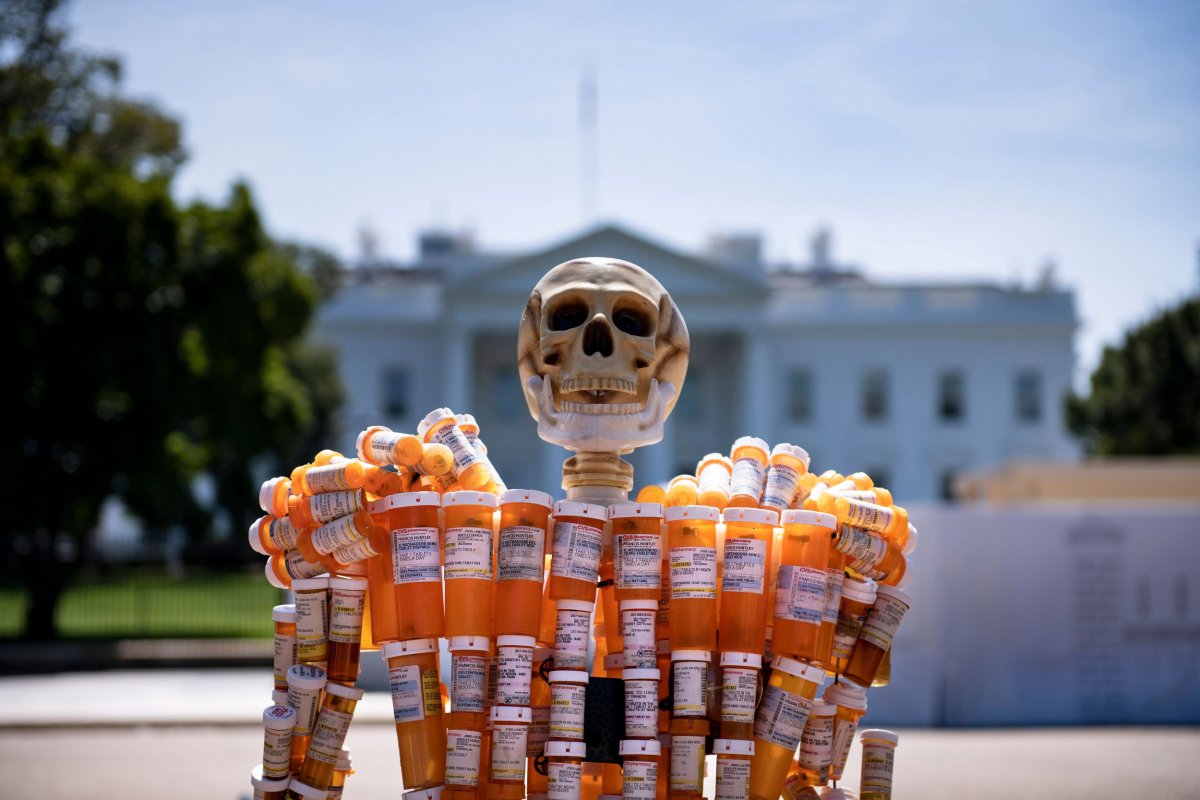The state of Washington is asking for billions of dollars from distributors of opioid medication for their alleged role in the opioid crisis, according to the Associated Press.
Washington state was ravaged by the opioid epidemic, which resulted in more than 8,000 deaths from 2006 to 2017. Washington Attorney General Bob Ferguson took the state's case against the three biggest drug distributors in the U.S. to trial and is hoping they will comply with the state's demands. McKesson Corp., Cardinal Health Inc., and AmerisourceBergen Corp. are involved in the lawsuit.
Ferguson and the state of Washington are asking for $38 billion in their lawsuit. They hope that opioid distributors will help fund treatment services, public education campaigns, criminal justice costs, and other additional damages. In contrast, a settlement proposed by distributors offering $527.5 million over 18 years was rejected, with Ferguson calling the proposal "woefully insufficient."
However, the drug companies are fighting back against the suit. Amid their claims that they cannot be held responsible for the opioid crisis, they said that Washington passing the Intractable Pain Act in the 1990s made it easier for people to obtain opioids. Despite this defense, the state and Ferguson claim that companies over-shipped prescriptions to Washington.
Opioid sales throughout Washington rose more than 500 percent between 1997 and 2011. The latter year also saw more than 112 million daily doses of prescription opioids dispensed in the state. The trial between Ferguson and the drug companies is expected to last around three months.
For more reporting from the Associated Press, see below.

Ferguson delivered part of the opening statement in King County Superior Court himself, calling the case possibly the most significant public health lawsuit his agency had ever filed.
"These companies knew what would happen if they failed to meet their duties," Ferguson told Judge Michael Ramsey Scott. "We know they were aware of the harms flowing from their conduct because, in private correspondence, company executives mocked individuals suffering the painful effects of opioid dependence... They displayed a callous disregard for the communities and people who bear the impact of their greed."
But Ferguson's legal strategy isn't without risk, as demonstrated by a loss involving three California counties in a similar case this month—and an Oklahoma Supreme Court decision overturning a $465 million judgment against drug manufacturer Johnson & Johnson.
Orange County Superior Court Judge Peter Wilson issued a tentative ruling November 1 that the counties, plus the city of Oakland, had not proven the pharmaceutical companies used deceptive marketing to increase unnecessary opioid prescriptions and create a public nuisance. The Oklahoma ruling said a lower court wrongly interpreted the state's public nuisance law.
In an email, Ferguson stressed that the relevant Washington laws differ and called the cases "apples and oranges."
Public nuisance claims are at the heart of some 3,000 lawsuits brought by state and local governments against drugmakers, distribution companies, and pharmacies. Washington's is the first by a state against drug distribution companies to go to trial. Ferguson is claiming public nuisance and violations of state consumer protection law.
"There is always uncertainty when you take a case to trial," he said. "However, we feel confident in the strength of our case."
The July deal would have provided about $30 million a year for Washington and its 320 cities and counties to split. Considering inflation over the 18-year payment period, the true value of the settlement was just $303 million, Ferguson said.
In a trial brief filed this month, the companies say that it wasn't their role to second-guess the prescriptions or interfere in the doctor-patient relationship.
"Increased opioid prescribing by well-meaning doctors, supported by the State's good-faith efforts to spare its residents from pain, in turn resulted in increased opioid distributions," the companies wrote. "Defendants played no role in changing the standard of care, nor do wholesale distributors have the expertise, the obligation, or the ability to second-guess good-faith medical decisions made by doctors to prescribe opioids."
In 2015, eight of Washington's 39 counties had more prescriptions than residents.
The prescription-drug epidemic has ebbed with further attention and controls, and prescription opioid deaths have fallen by half since 2010. But since then, heroin and fentanyl deaths have soared: Heroin-related mortality more than quintupled in Washington from 2010 to 2018, and fentanyl-related mortality more than doubled from 2016 to 2018.
"This occurred as a foreseeable result of users' addiction, particularly for those who could no longer obtain or afford prescription opioids," the state wrote in its trial brief. "These deaths and other heroin and fentanyl-related harms thus are an integral and tragic part of the opioid epidemic and public nuisance."
The federal government says nearly a half-million Americans have died from opioid abuse since 2001.
Other opioid trials rooted in public nuisance law are happening before juries in a federal court in Cleveland and a state court in New York. A ruling is expected soon in a trial before a judge in West Virginia.
Johnson & Johnson also faces a separate lawsuit from Washington state that is scheduled to go to trial next year.
Johnson & Johnson and the three distribution companies have been in the final stages of negotiating a $26 billion in settlements covering thousands of government lawsuits, though it could take months to get final approval.

Uncommon Knowledge
Newsweek is committed to challenging conventional wisdom and finding connections in the search for common ground.
Newsweek is committed to challenging conventional wisdom and finding connections in the search for common ground.
About the writer
To read how Newsweek uses AI as a newsroom tool, Click here.








